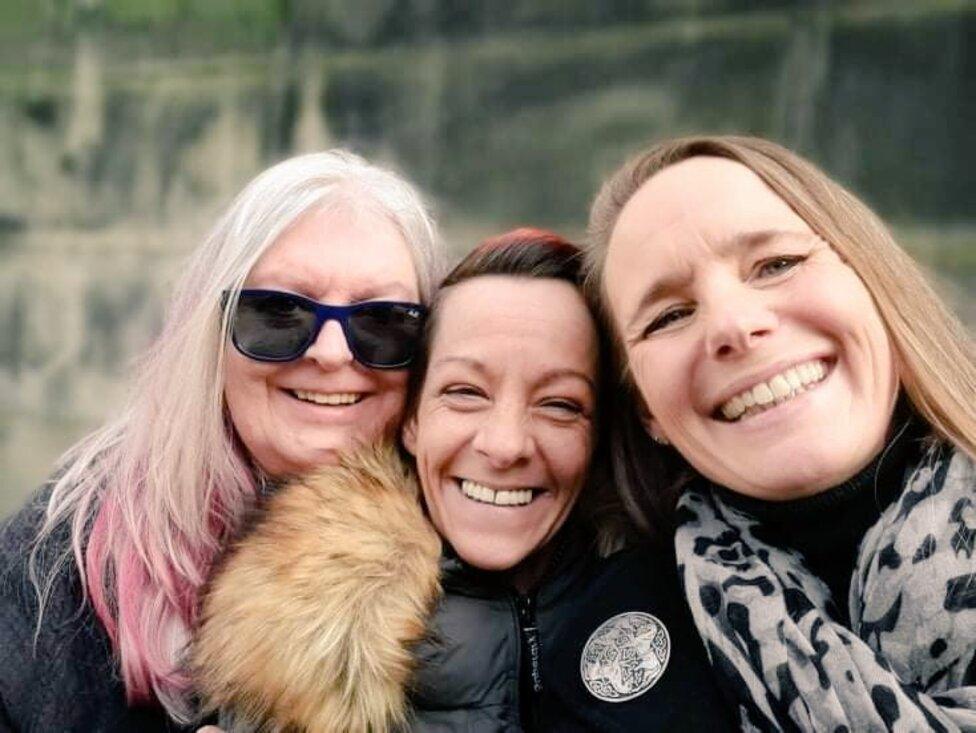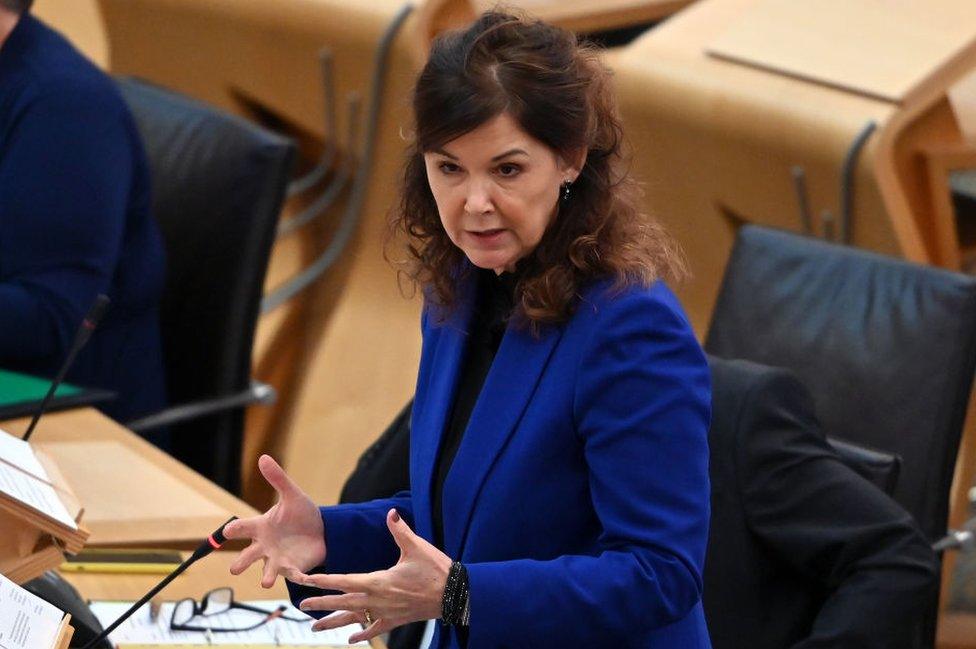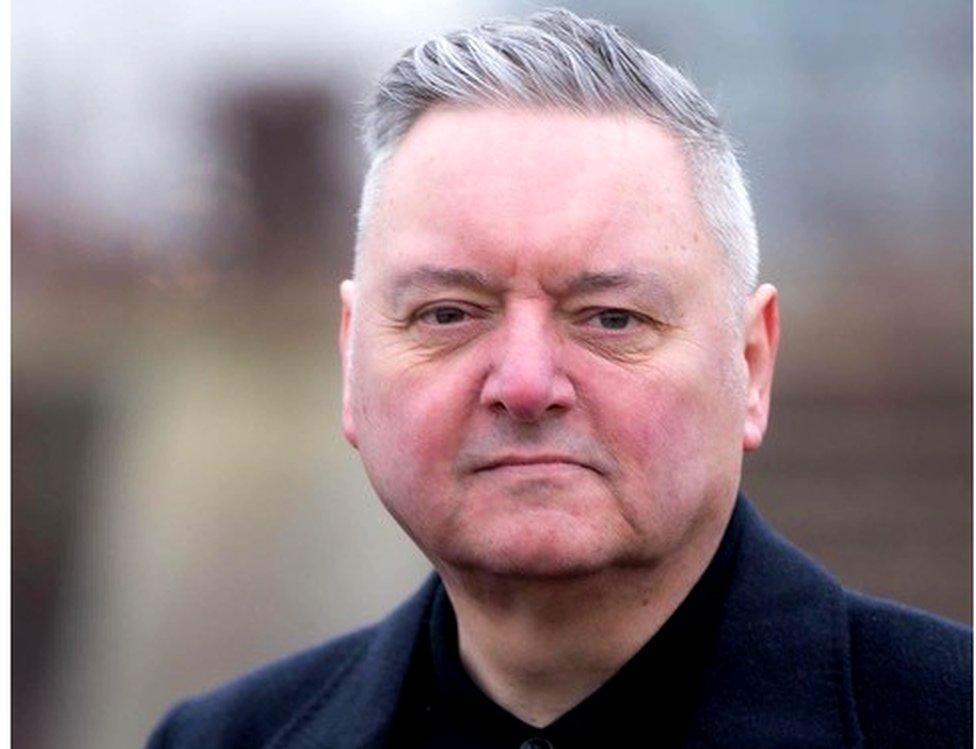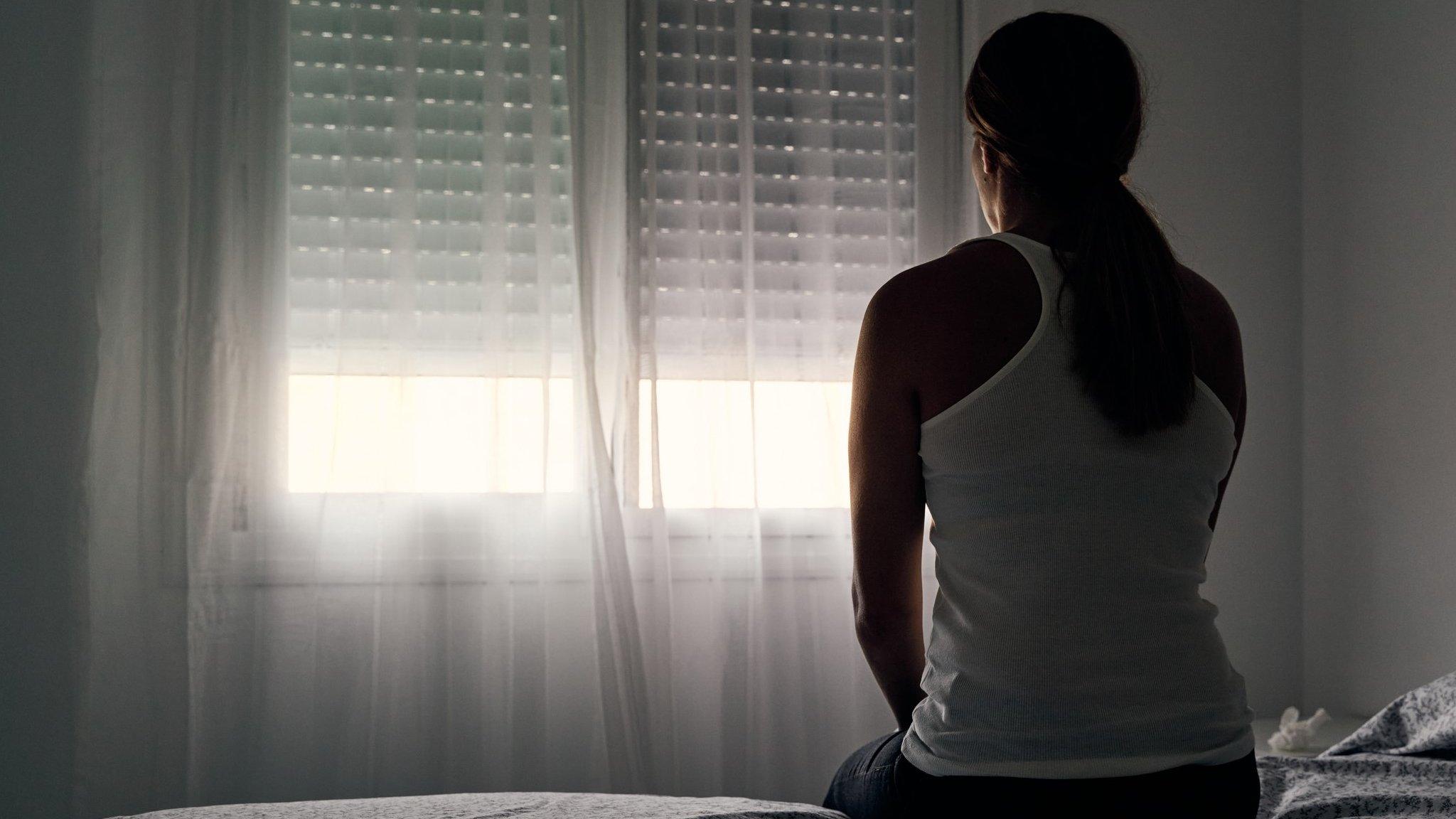Landmark ruling 'could have convicted my rapist'
- Published

Suzy Angus, Shirley Ross and Emma Bryson have welcomed the new ruling
Three survivors of sexual violence have described a landmark ruling in Scotland as "monumental" for rape cases.
Suzy Angus, Shirley Ross and Emma Bryson from Speak Out Survivors have been campaigning for reforms to the Scots law of corroboration for years.
Now there will no longer need to be evidence from two separate sources that penetration has taken place.
Instead, evidence that the victim was distressed afterwards could be used to corroborate the rape allegation.
All three reported childhood sexual abuse to the police. All three were told their evidence could not be corroborated. And all of their cases were dropped and did not make it to court.
Rape trials in Scotland require two sources of evidence for each part of the crime.
Prosecutors needed to prove that the rape happened, that there was no consent, and that the accused was responsible.
Campaigners have argued that the requirement for penetration to be independently corroborated by a second source in addition to the complainer has acted as a barrier to rape victims receiving justice.
'Box-ticking exercise'
Ms Bryson told BBC Scotland that reform could have made a "huge difference" if it was in place when she reported that she had been raped.
She said: "We don't imagine these reforms are going to open the floodgates, but what they do is they allow the body of evidence to be considered on its merits, on its quality and not the box-ticking exercise it has previously been."

Dorothy Bain KC, the Lord Advocate, said the decision had the potential to transform the way sexual abuse cases were prosecuted.
She said that in her case there were social work records that stated she had been raped and abused and there were other known victims.
But she said: "Because I was the only person willing to come forward, I didn't have that individual corroboration. I would now under these current circumstances.
"If I had waited until now to go to the police to report I would feel pretty confident that my attacker would be prosecuted."
She believes the changes are a turning point.
"It is hugely significant," she said. "It's significant for every single victim of a sexual offence in Scotland because it instantly increases the possibility that they will see their attacker in court and you can't place a value on that."
Ms Ross said that corroboration presented a huge barrier in getting a prosecution for rape in her case and she lost faith in the justice system.
"For 14 years I was abused," she said. "When you go to the police and they know what's happened to you and then they turn around and say 'we've not got the right sort of evidence', it makes you feel like you're not worth anything.
"They are reaffirming what the abuser says to you, because nothing is done and you're just left waiting to see if he's going to abuse, rape or attack somebody else."
She said she wanted to try and make it better for other people to get justice.
"This was for all the other survivors who hadn't found their voice yet, this was for them to make the process easier, simpler gentler, more caring."
'I just wept'
Suzy Angus' case fell apart due to lack of corroboration.
Ms Angus said she was abused by "several" people over a number of years and did not report it until decades later, which meant she had no second source to back up her claim.
She said police called her while she was at work to say her case was being dropped.
"I was standing at work in my office and this phone call came through and the police said well, we have gone through absolutely everything and we are going to have to drop the case because there is no corroboration for any of it.
"I just stood there and wept."
"It's the emotional and physical energy that you lived with and every so often you would get an email or a phone call from the police and it's like a punch in the stomach.
"You're constantly hearing and living through all of this trauma."
'Absolutely devastating'
Emma Bryson said her experience of the justice system left her distraught.
"The lowest point I experienced wasn't during the period when I was being abused, it was when I got told there wasn't going to be a prosecution.
"I had been through all of that, given my evidence, dragged everything up from the past, and to be told that the evidence was there but it was the wrong sort of evidence to meet the requirements of corroboration and that was absolutely devastating."
Now, distress witnessed by a third party or statements where a complainer is in a distressed state tells someone what has happened, can be used as corroboration.
But Thomas Ross KC, a former president of the Scottish Bar Association, raised concerns around false allegations of rape potentially making it to court as a result of the new ruling.

Thomas Ross KC said there would be losers in the new rules
He told BBC Scotland News: "For every change in the justice system there are winners and losers, and the losers in this example would be anybody against whom a false allegation is made.
"I know a case of a taxi driver who was persuaded against his better judgement to pick up a drunk and abusive female who continued to be drunk and abusive towards him.
"He took her to the police office and asked for the police to remove her from the taxi. After he left he got a call from the police to say he had to go back, because she had alleged that he had raped her."
Mr Ross said that last week the driver would not have been charged because never having had any sexual contact with her, there would never have been any evidence of that.
But next week, he could be charged because the fact the woman made the allegation together with the observed stress by the police officers would now be enough evidence for it to be taken to court.
Mr Ross said: "As it happened the man had GPS in his car and was able to show fairly quickly that the claim made by the woman was utterly false and malicious. But not everybody had got GPS in their car."
The Lord Advocate said the new ruling would now be considered by the crown office with prosecutors taking time to consider what it means for their work.
Related topics
- Published18 October 2023

- Published28 June 2022
